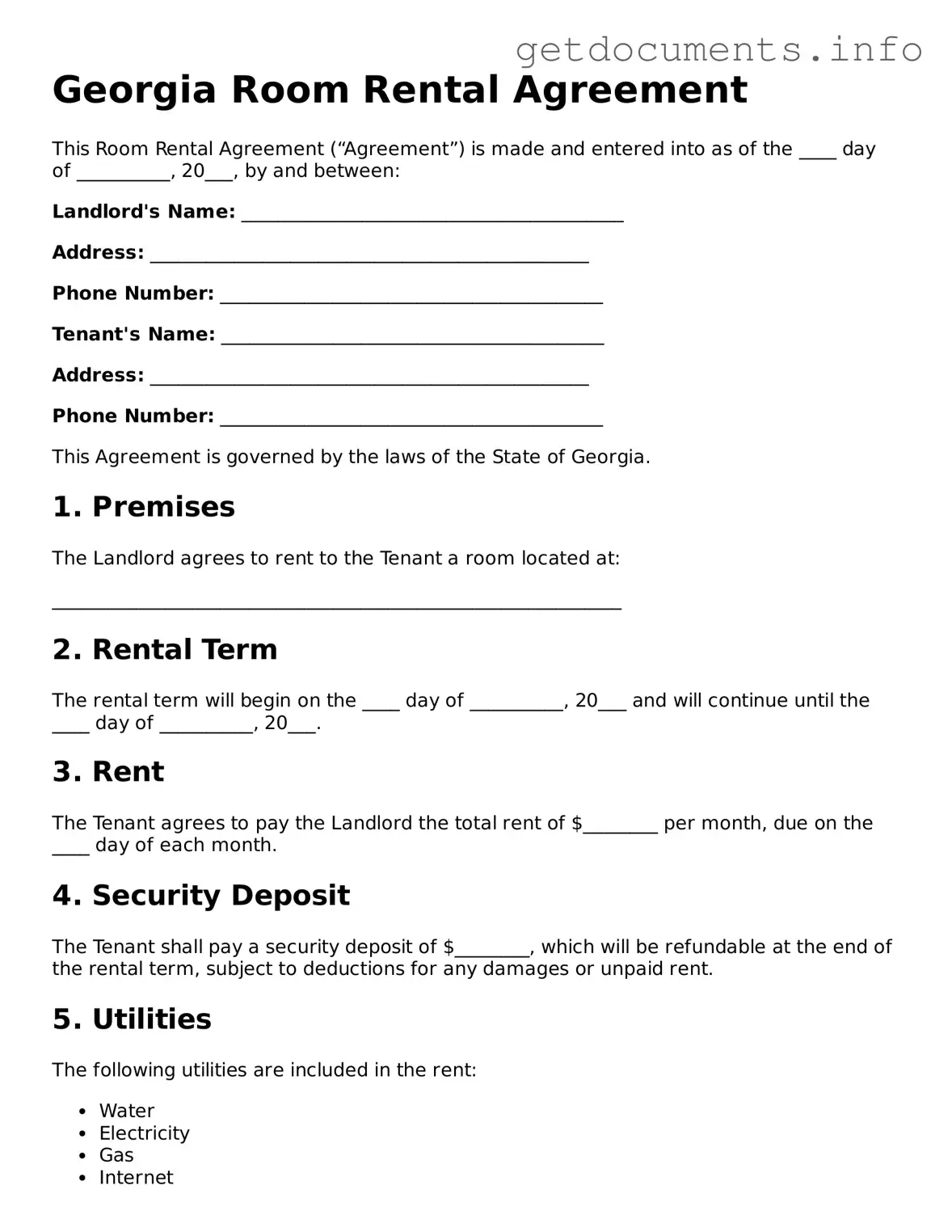Free Room Rental Agreement Template for Georgia
The Georgia Room Rental Agreement form is a legal document that outlines the terms and conditions between a landlord and tenant for renting a room in Georgia. This agreement serves to protect the rights of both parties while ensuring a clear understanding of responsibilities. For those looking to rent a room, it is essential to complete this form accurately to avoid misunderstandings and ensure a smooth rental experience.
To get started, please fill out the form by clicking the button below.
Access Room Rental Agreement Editor

Free Room Rental Agreement Template for Georgia
Access Room Rental Agreement Editor
Got places to be? Complete the form fast
Fill out Room Rental Agreement online and avoid printing or scanning.
Access Room Rental Agreement Editor
or
⇩ PDF File
